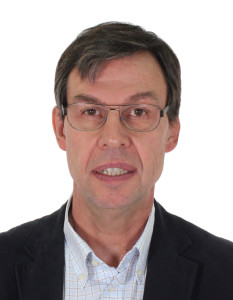 Starting in Hong Kong and Macau, GDF SUEZ Group has been involved in environmental projects in China for more than 20 years. Jean-Marc Guyot has been in Beijing for just three months, but has been travelling regularly to China and conducting business in the Energy Sector for more than two years. He talks about the challenges that GDF SUEZ face in China, and outlines their ambition to rapidly increase their footprint in China’s Energy Sector over the coming years.
Starting in Hong Kong and Macau, GDF SUEZ Group has been involved in environmental projects in China for more than 20 years. Jean-Marc Guyot has been in Beijing for just three months, but has been travelling regularly to China and conducting business in the Energy Sector for more than two years. He talks about the challenges that GDF SUEZ face in China, and outlines their ambition to rapidly increase their footprint in China’s Energy Sector over the coming years.
What is your current involvement in China’s energy sector?
We currently have very few activities in Mainland China. We are dealing with Liquefied Natural Gas (LNG) supply, LNG terminals, gas distribution, small-scale liquefaction, underground gas storage and Coal Bed Methane (a method of getting gas from coal), and also in Energy Services with heating/cooling networks, energy efficiency and smart cities.
What are some of the challenges GDF SUEZ face on a daily basis in China?
We have expressed a brand new ambition. GDF SUEZ is a world leader in Energy, but in China we are very small—we want to quickly become a significant player in this major market. The group decided six months ago to increase our activities in China. We are ready to invest and develop projects and we intend to do this through partnerships with big Chinese players from the energy sector.
GDF SUEZ has long been a reliable partner of China, as with CIC (China Investment Corporation), since 2011. We want to develop these partnerships in China first and, as a second step, outside of China as well. As you know, most of the big Chinese Companies are looking for outbound opportunities, and our expertise as a very well known international player is a key advantage for us.
Who will your Chinese partners be?
At this moment there are two types of Chinese Partners. The public ones, such as the local distribution companies (LDCs) in Beijing, in Shanghai and Chongqing, and the three big SOEs—PetroChina, Sinopec and CNOOC. There are also some private companies in gas business and in power production.
What do you see as the main differences between the European and Chinese markets?
First China is a very big market, still in development. Growth is slowing down but it is still large growth, depending on the different parts of the market. Another main difference, the rules of the game in the Energy Sector are currently changing a lot according to new governmental policies. This of course creates a lot of opportunities for foreign investors.
Which of the government’s planned reforms following the Third Plenum would have the biggest impact on your business?
All these reforms are very good news for us, for example, all the laws related to the environment. In Beijing the pollution is a major concern for the government, and gas is the main solution for replacing coal. Being in the gas business with a wealth of experience, this is an opportunity for us. The Chinese President has also recently brought focus to energy efficiency for reducing the energy wastage in China. Energy efficiency is part of our competencies, so this offers possibilities to develop projects.
Nobody knows the speed at which these reforms will be implemented, in China it will take time. However, we are encouraged by the recent developments.
How do you manage the challenge of finding and retaining people with the right skills and experience in China?
We know this is a big challenge that we have discussed with other large Chinese or foreign companies operating here. We intend to recruit Chinese talent in China, and prepare them to benefit from thrilling career prospects within the GDF SUEZ group. That could be a way to keep hold of Chinese talent, by training them and integrating them into other business lines inside or outside of China.


Recent Comments